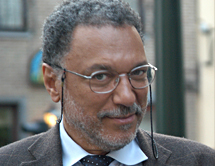
The Paris climate talks have begun and the world is watching in rapt attention as global leaders stake-out our carbon future. Meanwhile, in Canada, a recent profile of Dr. Daniel Pauly in Macleans magazine sought to understand our climate crisis from a different angle – namely, our past.
The profile, written by Evan Solomon, looks at Dr. Pauly’s ground-breaking research into “shifting baselines,” an idea he developed in the 1990’s that seeks to understand current fish population numbers in relation to their historical numbers.
“You need to know the past in order to anchor the events in the present,” said Dr. Pauly. “We know now that about half of the knowledge about fish who are not here anymore is lost every generation. Half!”
So how does Dr. Pauly’s fish population research relate to increasing carbon emissions?
“This idea is so important for climate change and the conference in Paris,” said Dr. Pauly. “The changes going on are so rapid and deep, but the loss of knowledge and contextualization from one generation to another is so subtle that often strong changes cannot be perceived.”
The Macleans article describes Canada’s baseline target for carbon dioxide limit as creeping upwards. Under the Kyoto Protocol, Canada set its baseline target to 1990 levels. Then, after Canada withdrew from the Kyoto Protocol, the baseline was reset: this time, to 2005 levels.
“Suddenly, that was the new normal,” Solomon writes.
Over the years successive negotiators at climate conferences have allowed baseline carbon dioxide emission targets to rise. Over time, these became the new normal, allowing carbon emitters – much like fishing countries – to avoid making difficult changes.
“Shifting baseline is also called collective amnesia,” said Dr. Pauly. “You don’t know the loss because it was never transmitted to you properly. You forget how it was so you find the present acceptable, normal, when it is not that at all.”

